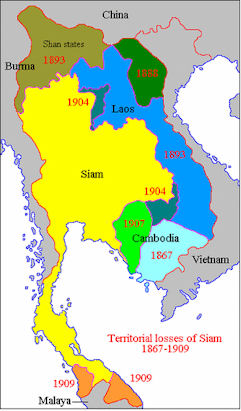

Zitierweise / cite as:
Payer, Alois <1944 - >: Chronik Thailands = กาลานุกรมสยามประเทศไทย. -- Chronik 1978 / B. E. 2521. -- Fassung vom 2017-03-18. -- URL: http://www.payer.de/thailandchronik/chronik1978.htm
Erstmals publiziert: 2012-10-05
Überarbeitungen: 2017-03-18 [Ergänzungen] ; 2016-11-27 [Ergänzungen] ; 2016-11-19 [Ergänzungen] ; 2016-09-13 [Ergänzungen] ; 2016-08-23 [Ergänzungen] ; 2016-07-05 [Ergänzungen] ; 2016-05-15 [Ergänzungen] ; 2016-04-08 [Ergänzungen] ; 2016-02-27 [Ergänzungen] ; 2016-02-01 [Ergänzungen] ; 2016-01-12 [Ergänzungen] ; 2015-11-19 [Ergänzungen] ; 2015-07-04 [Ergänzungen] ; 2015-06-29 [Ergänzungen] ; 2015-06-07 [Ergänzungen] ; 2015-05-21 [Ergänzungen] ; 2015-04-08 [Ergänzungen] ; 2014-11-25 [Ergänzungen] ; 2014-09-24 [Ergänzungen] ; 2014-08-23 [Ergänzungen] ; 2014-04-12 [Ergänzungen] ; 2013-10-25 [Ergänzungen] ; 2013-10-12 [Ergänzungen] ; 2013-05-01 [Ergänzungen] ; 2013-04-20 [Ergänzungen] ; 2013-01-25 [Ergänzungen] ; 2013-01-13 [Ergänzungen] ; 2012-10-07 [Ergänzungen]
©opyright: Dieser Text steht der Allgemeinheit zur Verfügung. Eine Verwertung in Publikationen, die über übliche Zitate hinausgeht, bedarf der ausdrücklichen Genehmigung des Herausgebers.
Dieser Text ist Teil der Abteilung
Thailand von
Tüpfli's Global Village Library
ช้างตายทั้งตัวเอาใบบัวปิดไม่มิด
|
Gewidmet meiner lieben Frau Margarete Payer die seit unserem ersten Besuch in Thailand 1974 mit mir die Liebe zu den und die Sorge um die Bewohner Thailands teilt. |
|
Bei thailändischen Statistiken muss man mit allen Fehlerquellen rechnen, die in folgendem Werk beschrieben sind:
Die Statistikdiagramme geben also meistens eher qualitative als korrekte quantitative Beziehungen wieder.
|
Statistische Daten 1978:
|
1978
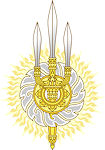

Der König in einem BBC-Fernsehinterview von David Lomax:
"First the thing is security, that is the security of the Thai People. The Thai people have to fight for their freedom and independence. So the main thing is to be a good general and then after that when the country is more settled it is to have law and order, law and administration and after that we must have at the same time we must have enough food to eat and enough facilities to have a good home, to have shelter. These are essential things. And then we must have a social order and more things of the heart; that means we must be good people so that there would be no disorder, because good people do not create trouble so much. So we must have religion, and the King is the leader of the religion also. [...]
Do you believe in the idea of original sin - that every person is born with some kind of sin?
There is no sin. There is no sin because, as I told you, there is the original purity which has been spoilt by, or covered by, what we call sin. It is just the opposite. It is the original purity, the original thing that is light, that is beautiful.
How do you reconcile your faith in Bud with its emphasis on not taking life bloodshed - with your role as head of the armed forces ...?
This is a problem - this is a problem, but
when a soldier holds a gun, this gun should be intended to shoot. And shoot what? Shoot an enemy that is a living being. But if he holds that gun with the intention of guarding, preserving his country, with this intention he is not sinful. And even if he has somebody who comes and is the enemy, he must shoot - he has to shoot. Why? Because he has the intention of guarding his country, of preserving his country - and, by the way, also the religion. If the enemy comes, the country is gone, is destroyed, there is no religion, and that is no good."
1978

Ein Studybook preparing for the experience of life (Thai Titel nicht angegeben) des Educational Technique Bureau:
"From time immemorial, the Thai kings have loved and been worried about the populace, as a father about his children. As a leader, the king has promoted the good and prosperity of the country so that the populace could always enjoy peace and happiness. That is why we worship the institution of king forever." [Zitiert in: Marshall, Andrew MacGregor <1971 - >: A Kingdom in crisis : Thailand's struggle for democracy in the twenty-first century. -- 2. ed.. -- London : Zed, 2015. -- 240 S. ; 22 cm. -- ISBN 978-1-78360-602-3. -- S. 27. -- Fair use]
1978
Sprichwort in Nordostthailand
"Floods, fire, drought and corrupt officials from Bangkok; these are the four evils which make life for us so difficult". [Quelle: Luther, Hans Ulrich <1940 - >: Peasants and state in contemporary Thailand : from regional revolt to national revolution?. -- Hamburg : Institut für Asienkunde, 1978. -- 109 S. ; 21 cm. -- (Mitteilungen des Instituts für Asienkunde, Hamburg ; Nr. 98). -- ISBN 3-921469-49-X. -- S. 45]
1978
Nordthailand: Mangel an Klebereis. Der Preis in den Dörfern verdoppelt sich auf 5 Baht pro Liter.
1978
Löhne in Bangkok:
- ungelernter Arbeiter: 30 Baht / Tag
- gelernter Arbeiter: 1000 - 2000 Baht / Monat
- Chauffeur: 3000 Baht / Monat
1978
Die Profitrate auf dem industriellen Sektor ist 117% der Investitionen, damit die höchste in ganz Südostasien.
Zehn größere Firmen erwirtschaften zusammen täglich einen Gewinn von 69 Mio. Baht, an die 10.000 Arbeiter werden pro Tag 280.000 Baht gezahlt, also ca. 0,4% des Kapitalgewinns.
1966 - 1984
Tote im Kampf mit der Kommunistischen Partei Thailands (CPT, พรรคคอมมิวนิสต์แห่งประเทศไทย):
Abb.: Tote im Kampf mit der Kommunistischen Partei Thailands (CPT, พรรคคอมมิวนิสต์แห่งประเทศไทย), 1966 - 1984
RTG = Royal Thai Government
Total der Toten: CPT: 4.588 ; Royal Thai Government: 5.916
[Datenquelle: Bowie (1997), S. 298]Verwundete im Kampf mit der Kommunistischen Partei Thailands (CPT, พรรคคอมมิวนิสต์แห่งประเทศไทย):
Abb.: Verwundete im Kampf mit der Kommunistischen Partei Thailands (CPT, พรรคคอมมิวนิสต์แห่งประเทศไทย), 1966 - 1984
RTG = Royal Thai Government
Total der Verwundeten: CPT: 1.830 ; Royal Thai Government: 15.941
[Datenquelle: Bowie (1997), S. 298]
1978 (??)
Tod von Kamerad Samanan (มิตร สมานันท์, aka Charoen Wanngam - เจริญ วรรณงาม) Generalsekretär der Kommunistischen Partei Thailands (CPT, พรรคคอมมิวนิสต์แห่งประเทศไทย, พคท).
1975 - 2011
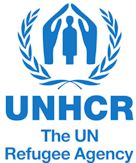
Nettozahlungen des UNHCR (United Nations High Commissioner for Refugees)
Abb.: Nettozahlungen des UNHCR an Thailand 1975 - 2011 (in Mio. US$)
[Datenquelle: http://www.indexmundi.com/facts/thailand/net-official-flows-from-un-agencies. -- Zugriff am 2014-04-05]
1978
Migranten in Bangkok aus den einzelnen Regionen:
Abb.: Migranten in Bangkok aus den einzelnen Regionen 1978 (in Tausend)
[Datenquelle: Phongpaichit (1982), S. 36]
Abb.: Klassischer Beruf für Migranten aus Nordostthailand: Tuktuk-Fahrer (ตุ๊กตุ๊ก), Bangkok, 2007
[Bildquelle: Matthew Klein. -- http://www.flickr.com/photos/kleinmatt66/662663373/. -- Zugriff am 2012-02-08. -- Creative Commons Lizenz (Namensnennung, keine kommerzielle Nutzung, keine Bearbeitung)]
1978
Gründung der Thai National Defence Volunteers (TNDV, Tor Sor Por Chor), einer paramilitärischen Gruppe zur Bekämpfung kommunistischer Guerillas.
1978
Han Pongsitanond vom Internal Security Operations Command (ISOC - กองอำนวยการรักษาความมั่นคง
ภายในราชอาณาจักร ) in einem Interview:
"the villagers' single most critical grievance involved the behavior of government officials in their contacts with the villagers. These conflicts between villagers and government officials, and the resultant grievances, became the basis by which the insurgents could motivate the villagers to support the insurgency. The party was exploiting the anger of villagers toward officials to organize in hundreds of villages." [Zitiert in: Rosenberg, Klaus <1943 - 1988>: Sozialkritische Literatur in Thailand : Protest und Anklage in Romanen und Kurzgeschichten eines Landes der Dritten Welt. -- Hamburg : Ges. für Natur- u. Völkerkunde Ostasiens, 1986. -- 360 S. ; 21 cm. -- (Gesellschaft für Natur- und Völkerkunde Ostasiens: Mitteilungen der Gesellschaft für Natur- und Völkerkunde Ostasiens e.V. Hamburg ; Bd. 101). -- S. 141]
1978
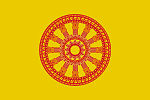
Gründung der Nekkhammaphirom Monastic Residence (Samnak Chi) (สำนักเนกขัมมาภิรมภ์ (สำนักชี)) in Tambon Photharam, Amphoe Photharam, Province Ratchaburi (ตำบล โพธาราม อำเภอ โพธาราม จังหวัด ราชบุรี).
"Ratburi Samnak Chii [สำนักชี] was established in 1978 and has expanded continually over its more than two decades of existence. The two mae chiis [แม่ชี], Mae chii Prathinand Mae chii Sumon had just finished their studies at Magadha University in Bodh Gaya in India when they were invited by the Thai Mae Chiis’ Institute to establish a samnak chii in Ratchaburi Province. Mae chii Sumon, had completed her PhD and Mae chii Prathin had finished an MA in ancient history. They welcomed the opportunity to start a samnak chii, and to found a much needed educational programme for the mae chiis. It was a lay woman who had donated land to the Mae Chiis’ Institute with the objective of setting up a samnak chii (female ‘temple’). In 1978, it was fairly rare to find mae chii communities outside the administrative structure of the temple. However, the two neighbouring provinces, Ratchaburi and Petchaburi [เพชรบุรี], have had samnak chiis run by women renunciates for a long time (Kabilsingh 1991: 65; Tiyavanich1997: 283). These two provinces have comparatively high numbers of maechiis and, as mentioned above, there are some well-known female dhamma and meditation teachers from this region. In 1997 there were about 50 mae chiis, a varying number of chii phraams [ชีพราหมณ์] (temporary ascetic women) and 47 schoolgirls called dhammacarinii living at the samnak chii. The dhammacariniis studied secondary education and Buddhism at the samnak chii’s school. The samnak chii opened that school in 1990 and it was the first school ever established by mae chiis for girls in Thailand. By contrast, boys have always had the opportunity to get free education at the temple schools. The schoolgirls came from different parts of the country, mostly from poor villages in the Northeastern and Central provinces and they stayed at the samnak chii for either two or four years. The school also provided an opportunity for mae chiis to acquire higher education and mae chiis from all over the country came to live and study at this samnak chii. " [Quelle: Falk, Monica Lindberg: Making fields of merit : Buddhist female ascetics and gendered orders in Thailand. -- Seattle : Univ. of Washington Pr., 2007. -- 283 S. : Ill ; 23 cm. -- (Critical dialogues in Southeast Asian studies). -- ISBN 9780295987262. -- S. 15f. -- Faire use]
1978


Khunying Sangdao Siamwalla (คุณหญิง แสงดาว สยามวาลา) von der Thai Muslim Women Association (สมาคมสตรีไทยมุสลิมแห่งประเทศไทย) besucht Muammar Muhammad Abdassalam Abu Minyar al-Gaddafi (1942 - 2011) (معمر محمد أبو منيار القذافي), das Staatsoberhaupt von Libyen. Gaddafi gilt als einer der Hauptunterstützer der separatistischen muslimischen Guerillas in Südthailand.
Abb.:
[Bildquelle: DonkeyHotey. -- https://www.flickr.com/photos/donkeyhotey/5486123042/. -- Zugriff am 2014-08-23. -- Creative Commons Lizenz (Namensnennung)]
1978

Zum Beispiel: In Pattani (ปัตตานี) gibt es zahlreiche nebenamtliche bomoh (malaiische Medizinmänner / Schamanen). Alle betrachten sich als gute Muslime.
Abb.: Lage von Pattani (ปัตตานี)
[Bildquelle: OpenStreetMap. -- Creative Commons Lizenz (Namensnennung, share alike)]
"A bomoh, dukun or pawing/pawang in various languages, is a Malay shaman. Background
The bomoh's original role was that of a healer[3] and their expertise was first and foremost an in-depth knowledge of medicinal herbs and tajul muluk or Malay geomancy. This was supplemented by Sanskrit mantera (mantras) owing to the ancient Hindu-Buddhist influence in the region.Since 1980s
The bomoh's craft remained largely unchanged even after Islam became dominant until the Islamic revival in the 1970s and 80s. Bomoh were then seen as deviant from the Muslim faith because of their invocation of spirits and the potentially harmful black magic they were accused of practicing. This period saw a drastic decline in authentic bomoh and many fraudulent shamans filled the void. As a result, bomoh are today looked at with suspicion even though they are still commonly consulted for personal reasons.Cosmology and function
Malay metaphysical theory holds that the body, and in fact the universe itself, is made up of the four classical elements of fire, water, earth, and wind. Illnesses are often said to be caused by an imbalance of these elements. To restore this balance, patients are advised to bathe in cool water to which lime juice is added. The bomoh also works with rituals and incantations, called jampi.[4]
Spirits
Some bomoh use cemeteries to summon spirits to fulfill requests by supplicants, while others only deal with a single spirit. It is said that sometimes the bomoh selects the spirit, while other times, it is the spirit who selects the bomoh. Spirits are said to be able to heal the sick, seek missing persons or even investigate reasons for bad luck. Spirits can also be used to attack people, cause sickness and misery and many other bad things. Bomoh who have a particular religion may incorporate their religious practices into their craft.
Traditionally, healing rituals of some bomoh involved music and dance, such as the main puteri or main peteri (a trance-dance from Kelantan and Trengganu often connected to mak yong), the main lukah (a fisherman's dance from Pahang), and the main saba (which re-enacts the heavenly princesses [puteri kayangan] dancing around a saba tree). The music is played by an assistant called the tuk minduk."[Quelle: http://en.wikipedia.org/wiki/Bomoh. -- Zugriff am 2015-06-01]
1978
Der Betrieb von Tanzlokalen wird lizenzpflichtig. Auf legalem Weg sind kaum Lizenzen erhältlich: ein Riesengeschäft für die korrupte Polizei.
1978 - 1994
Es erscheinen die 12 Bände des Schulbuchs für die Thaisprache:
มานะ มานี ปิติ ชูใจ [Mana Mani]
Abb.: Einbandtitel eines der Bände
Abb.: Die Hauptpersonen
1978
Anläßlich ihres ersten Fernsehauftritts ändert die Luk Thung (เพลงลูกทุ่ง) Sängerin Ramphueng Chit-han (รำพึง จิตรหาญ, 1961 - 1992) ihren Künstlernamen von น้ำผึ้ง เมืองสุพรรณ (Honig von Suphanburi) in พุ่มพวง ดวงจันทร์ (Pumpuang Duangjan - Schönes Mädchen Mond)
Künstlerlink auf Spotify:
URI: spotify:artist:7bssbqY8HKop2WbQs7meR6
URL: https://open.spotify.com/artist/7bssbqY8HKop2WbQs7meR6
1978
Es erscheint:
Caravan = คาราวาน : Thailand : songs for life ; songs of the peasant, student and worker struggle for democratic rights = เพลงเพื่อชีวิต. -- New York ; Paredon Records, 1978
Das Album auf Spotify:
URI: spotify:album:0RV5Xh3T5AS5jR9dpS1xKG
URL: https://open.spotify.com/album/0RV5Xh3T5AS5jR9dpS1xKGEs sind Gesänge für den bewaffneten Kampf gegen die Herrschenden in Thailand.
Abb.: Plattencover
[Fair use]
1978
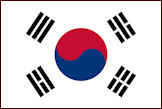
Es erscheint der Song nach einer koreanischen Melodie:
เลิศ ประสมทรัพย์ [Loet Prasomsap] <1923 - 1991>: ริมฝั่งน้ำแพงม้า [Das Ufer des Phaengma-Flusses]
Abb.: Hülle einer späteren Ausgabe
[Fair use]Künstlerlink auf Spotify:
URI: spotify:artist:5Im4d3lqNKfESr07xtXaGN
URL: https://open.spotify.com/artist/5Im4d3lqNKfESr07xtXaGN
1978
Abb.: Titelblatt eines Hefts der Zeitschrift มหัศจรรย์ ["Verwunderliches"]
1978
Es erscheint die Studie marxistischer politischer Ökonomie:
ปรีชา เปี่ยมพงศ์สานต์ [Pricha Piamphongsan] ; จำรัส ม่วงยาม [Chamrat Muangyam] <1929 - 1979>: ทางเดินของชาวนาไทย [Der Weg des Thai Bauern]
Abb.: EinbandtitelZitate:
"Bei der Lösung des Problems der Armut ist es vor allem notwendig, die Bedeutung der ländlichen Regionen zu betonen. Denn in der thailändischen Gesellschaft bedeutet Armut eben gerade Armut auf dem Lande. Die Klasse mit den geringsten Einkommen sind die Bauern, die, den größten Teil der thailändischen Gesellschaft bildend, auf dem Land in Armut geboren sind und dort in Armut gefangen leben ... In der Geschichte der thailändischen Gesellschaft waren (die Regierenden) nur auf Fortschritt und Entwicklung in den Städten aus, ohne an die ländlichen Gebiete zu denken, wo der größte Teil der Bevölkerung lebt. Alle vorhandenen Mittel wurden in die städtische Wirtschaft gesteckt. Die staatliche Administration und sämtliche Industrieinvestitionen wurden in den Städten konzentriert. Staatliche Sozialleistungen wie z.B. (im Bereich) der medizinischen Versorgung, Volksgesundheit und des Bildungswesens konzentrierten sich ebenfalls auf den städtischen Bereich. Eine solche Politik schuf nichts als Rückständigkeit der ländlichen Regionen und zeichnete die Landbevölkerung noch mehr mit Armut und Elend. Die thailändische Gesellschaft besitzt daher eine Struktur, die voller Dauercharakter aufweisender Ungleichheiten ist." [Übersetzt von: Rosenberg, Klaus <1943 - 1988>: Sozialkritische Literatur in Thailand : Protest und Anklage in Romanen und Kurzgeschichten eines Landes der Dritten Welt. -- Hamburg : Ges. für Natur- u. Völkerkunde Ostasiens, 1986. -- 360 S. ; 21 cm. -- (Gesellschaft für Natur- und Völkerkunde Ostasiens: Mitteilungen der Gesellschaft für Natur- und Völkerkunde Ostasiens e.V. Hamburg ; Bd. 101). -- S. 82f.]
"Die breite Masse der Bevölkerung und die Bauern, die deren Mehrheit bilden, sind es, die dem Staat Steuern entrichten, direkte und indirekte. Sind es denn nicht die Steuergelder des Volkes, die an den Bildungsinstituten, den Schulen und Universitäten für Bauten, für Lehrergehälter und für Lehrmaterial verwendet werden? Warum haben dann aber die Kinder aus dem Volk keine Chance zu lernen? Wenn es die Regierung oder die Staatsführung ehrlich mit dem Volk meint, muß sie jedermann lernen lassen, ohne Schulgebühren und auf der Grundlage der Gleichheit." [Übersetzt von: Rosenberg, Klaus <1943 - 1988>: Sozialkritische Literatur in Thailand : Protest und Anklage in Romanen und Kurzgeschichten eines Landes der Dritten Welt. -- Hamburg : Ges. für Natur- u. Völkerkunde Ostasiens, 1986. -- 360 S. ; 21 cm. -- (Gesellschaft für Natur- und Völkerkunde Ostasiens: Mitteilungen der Gesellschaft für Natur- und Völkerkunde Ostasiens e.V. Hamburg ; Bd. 101). -- S. 95]
1978
Es erscheint die bei Studenten und linken Schriftstellern sehr einflussreiche Schrift:
ทีปคร [= จิตร ภูมิศักดิ์] [Thipakon = Jit Phumisak] <1930 - 1966>: ศิลปะเพื่อชีวิต ศิลปะเพื่อประชาชน [Kunst fürs Leben, Kunst fürs Volk]
Abb.: Einbandtitel einer Ausgabe
"Wenn Cit Phumisak [จิตร ภูมิศักดิ์] derartig simplifizierende Kurzgeschichten wie diese [Si Sarakham: Dem Hund gestohlen, 1966] und Si Buraphas "Die Bitte um Hilfe" [ศรีบูรพา [= กุหลาบ สายประดิษฐ์] [Siburapha = Kulap Saipradit] <1905 - 1974>: ขอแรงหน่อยเถอะ], in denen der Gegensatz zwischen arm und reich in kaum noch zu überbietender Plumpheit und ohne Vermittlung einer Einsicht in gesellschaftliche Zusammenhänge dargestellt wird, als vorbildhaft für die von ihm propagierte 'Literatur des Volkes' betrachtete, so zeigt sich daran, wie gering die Ansprüche waren, die er an dieses literarische Genre stellte. Offenkundig kam es ihm im wesentlichen nur darauf an, dass in Romanen und Kurzgeschichten dieser Gattung mit möglichst großer Deutlichkeit eine mit den Menschen der Unterschicht sympathisierende und den Reichen gegenüber feindliche Grundhaltung, die ’richtige' Gesinnung also, zum Ausdruck gebracht wurde. Eine derartige Auffassung scheint die Konzeption der sozialengagierten Literatur in Thailand allgemein in starkem Maße geprägt zu haben." [Quelle: Rosenberg, Klaus <1943 - 1988>: Sozialkritische Literatur in Thailand : Protest und Anklage in Romanen und Kurzgeschichten eines Landes der Dritten Welt. -- Hamburg : Ges. für Natur- u. Völkerkunde Ostasiens, 1986. -- 360 S. ; 21 cm. -- (Gesellschaft für Natur- und Völkerkunde Ostasiens: Mitteilungen der Gesellschaft für Natur- und Völkerkunde Ostasiens e.V. Hamburg ; Bd. 101). -- S. 205]
1978
Es erscheint der Roman
คำหมาน คนไค [Khamman Khonkhai] <1937 - >: ครูบ้านนอก ["Der Dorflehrer"]
Abb.: Einbandtitel
1978
Es erscheint die Sammlung von moralisierend-sozialkritischen Kurzgeschichten:
มานพ แก้วสนิท [Manop Kaeosanit] <1951 - >: แล้งเข็ญที่เป็นอยู่ [Die herrschende Dürre]
Abb.: EinbandtitelAus dem Vorwort:
"Wenn alle Menschen in der rechten Weise ihre Pflicht täten, sich nicht gegenseitig unterdrückten und drangsalierten, andere, die ihnen an Bildung unterlegen sind, nicht als ihre Beute betrachteten, würden keine Probleme entstehen, und ich brauchte nichts mehr zu schreiben." Durch ungeschminkte Schilderung der Realität möchte dieser Autor das Gewissen seiner Leser aufrütteln; seine Geschichten, so warnt er, seien nicht unterhaltsam und bereiteten kein Vergnügen:
"Und dies ist meine Absicht. Denn tatsächlich sind die Geschichten, die in der Realität passieren, viel trauriger und schmerzlicher als die Buchstaben, die ich schreibe. Weil sie die Wahrheit sind, d.h. Wirklichkeit. Mein Vorsatz ist es, die Wirklichkeit so wirklich werden zu lassen, wie es der Verstand vermag."
[Übersetzt von: Rosenberg, Klaus <1943 - 1988>: Sozialkritische Literatur in Thailand : Protest und Anklage in Romanen und Kurzgeschichten eines Landes der Dritten Welt. -- Hamburg : Ges. für Natur- u. Völkerkunde Ostasiens, 1986. -- 360 S. ; 21 cm. -- (Gesellschaft für Natur- und Völkerkunde Ostasiens: Mitteilungen der Gesellschaft für Natur- und Völkerkunde Ostasiens e.V. Hamburg ; Bd. 101). -- S. 80f.]
1978
Es erscheint die Kurzgeschichte
คมทวน คันธนู [Khomthuan Khanthanu] <1950 - >: ที่เห็นและเป็นอยู่ [Das, was man gesehen hat und was ist]
"In Anlehnung an einen authentischen, auch von der thailändischen Presse verbreiteten Fall, wird hier von einem regelrechten Arbeitslager erzählt, das sich in einer schwer zugänglichen Gegend inmitten der Wildnis befindet und das von einem skrupellosen chinesischen Geschäftsmann betrieben wird. Dieser wirbt unter falschen Versprechungen verarmte Bauern aus dem Isan [อีสาน] an, die bei ihm erträgliche Arbeitsbedingungen und guten Lohn zu finden hoffen. In dem Lager angekommen, müssen sie dann, von schwerbewaffneten Wächtern beaufsichtigt, unter unsäglichen Strapazen und bei schlechter Verpflegung von früh bis spät auf den Plantagen des Chinesen arbeiten. Den geringen Lohn, den sie dafür in unregelmäßigen Abständen erhalten, sind sie gezwungen, in dem Laden ihres Arbeitgebers für die Dinge ihres täglichen Bedarfs wieder auszugeben. Durch Krankheit arbeitsunfähig gewordene Arbeiter werden erschossen." [Quelle: Rosenberg, Klaus <1943 - 1988>: Sozialkritische Literatur in Thailand : Protest und Anklage in Romanen und Kurzgeschichten eines Landes der Dritten Welt. -- Hamburg : Ges. für Natur- u. Völkerkunde Ostasiens, 1986. -- 360 S. ; 21 cm. -- (Gesellschaft für Natur- und Völkerkunde Ostasiens: Mitteilungen der Gesellschaft für Natur- und Völkerkunde Ostasiens e.V. Hamburg ; Bd. 101). -- S. 135]
1978
Es erscheint
อังคาร กัลยาณพงศ์ [Ankarn Kalyanapong] <1926 - 2012>: บางกอกแก้วกำสรวล หรือ นิราศนครศรีธรรมราช. -- กรุงเทพฯ : มูลนิธิเสฐียรโกเศศ, 2521. -- Das Nirat (นิราศ) beklagt die schlechte Lebensqualität in Bangkok, seine moralische Dekadenz und den schauderbare Verkehr.
Abb.: Einbandtitel
1978 - 1992

Deutsche Entwicklungshilfe: Thai-German Animal Health Project. Gründet u.a. Northeast Regional Veterinary Research and Diagnostic Centre (NERVRDC) in Tha Phra (ท่าพระ, Provinz Khon Kaen - ขอนแก่น).
Abb.: Lage von Tha Phra (ท่าพระ)
[Bildquelle: OpenStreetMap. -- Creative Commons Lizenz (Namensnennung, share alike)]
1978

Es erscheint:
Thailand, roots of conflict / edited by Andrew Turton <1938 - >, Jonathan Fast <1948 - >, Malcolm Caldwell <1931 - 1978>. -- Nottingham : Spokesman Books, 1978. -- 196 S. ; 22 cm. -- ISBN 0851242383
Abb.: EinbandtitelInhalt:
Strategy in the 1980s / Malcolm Caldwell <1931 - 1978>
- Thailand and Imperialist
The Socio-Economic Formation of Modern Thailand / David Elliott‘Cycles’ of Class Struggle in Thailand / Peter F. Bell Causes and Consequences of the October ’76 Coup / Marian Mallet The Current Situation in the Thai Countryside / Andrew Turton <1938 - > History and Policy of the Communist Party of Thailand / Patrice de Beer <1942 - >Appendix 1: A brief introduction to the history of the Communist Party of Thailand (1942-1977) Appendix 2: Life in the Thai liberated zones / by Chontira Satayawatana [ชลธิรา (สัตยา วัฒนา) กลัดอยู่] Appendix 3: Statement in commemoration of the 35th anniversary of the founding of the Communist Party of Thailand / by Mitr Samanand, First Secretary-General of the CPT Appendix 4: Interview with the President of the northern region, Peasants Federation of Thailand — September 1976 Appendix 5: The war in southern Thailand / by Ruang Kao [รวงข้าว ?]
"Following the May, 1975, land dispossession protest referred to earlier, students went out to the provinces to investigate and offer help. In Petchabun [เพชรบูรณ์] the provincial governor surrounded the school, where the students were staying, with Border Patrol Police [ตำรวจตระเวนชายแดน]] and ordered the students out of the town within fifteen minutes, spreading the rumour that the students were going to burn down the market place! In the Nongbuaban [หนองบัวบาน] area of Udorn [อุดรธานี ] province villagers from 14 villages faced dispossession from 20,000 rai [ไร่; 1 Rai = 1600 m²] of land due to the building of a dam and hydroelectric scheme which, it was feared, would mainly benefit the neighbouring US air base. There was a related problem of increases of cattle theft. On 6th May, 1974, when a meeting of villagers and students was about to break up, the local district officer and the mayor brought in 1,000 people from another area, some armed, to hold a meeting with loudspeakers a short distance away attacking the villagers and students for being "communists" and for "mobilizing the masses". After 200 police and soldiers present had been withdrawn, the villagers were attacked and three received gunshot wounds. Apparently the presence of newsreporters and Buddhist monks prevented worse.
In another North Eastern area, Bakdong [บักดอง] in Srisaket province [ศรีสะเกษ], villagers were protesting at the (legalized) expropriation by a timber company of 10,000 rai of forested land which had previously been used by 2,000 families. On 21st May, 1975, the villagers, following a pattern common to many other cases, requested the NSCT [National Student Center of Thailand - ศูนย์นิสิตนักศึกษาแห่งประเทศไทย] to join with them in pursuing their case. The provincial governor hired trucks to take people from another area to break up the meeting of villagers and students, putting about a false report of the presence of "communist documents and weapons".
On 3rd August, 1975, nine people, farmers and students, were arrested after protesting the behaviour of a mine owner in Mae Tha district [แม่ทะ], Lamphun [richtig: Lampang - ลำปาง]. The protest movement following these arrests spread from Lamphun [ลำพูน / หละปูน], Chiengmai [เชียงใหม่] and Lampang in the North to Ubol [อุบลราชธานี] and Korat [โคราช] in the North East, Ayuthaya [อยุธยา], Cholburi [ชลบุรี] and Bangkok in the Centre, Songkhla [สงขลา] in the South, and other places. By 9th August no fewer than 23 progressive groups had committed themselves to protect against the arrests and to defend democracy in case of a coup d’dtat and further suppression.
On 11th February, 1976, two technical college students were killed and two injured when a bomb was thrown into a house in Suandork sub-district [สวนดอก], Chiengmai They had been members of a group which had advised farmers on their legal rights and had also advised workers in distillery and woodcarving factories, and municipal workers.
[Quelle: Turton, Andrew <1938 - >: The Current Situation in the Thai Countryside. -- a.a.O., S. 130f. -- Fair use]
Abb.: Lage von Nong Bua Ban [หนองบัวบาน]
[Bildquelle: OpenStreetMap. -- Creative Commons Lizenz (Namensnennung, share alike)]
1978

Es erscheint
Luther, Hans Ulrich: Peasants and state in contemporary Thailand : from regional revolt to national revolution?. -- Hamburg : Institut für Asienkunde, 1978. -- 109 S. ; 21 cm. -- (Mitteilungen des Instituts für Asienkunde, Hamburg ; Nr. 98). -- ISBN 3-921469-49-X
Abb.: Einbandtitel
1978 - 1982

Hans Fischer (1924 - 1983) ist Botschafter der DDR für Thailand. Er residiert in Rangoon (Burma).
"Hans Fischer (* 5. Juli 1924 in Eisenach; † 31. Juli 1983) war ein deutscher Diplomat. Er war Botschafter der DDR in Uganda und Ruanda sowie in Birma und Thailand. Leben
Nach bestandenem Abitur leistete Fischer Kriegsdienst. In Italien geriet er in amerikanische Kriegsgefangenschaft. Von 1946 bis 1952 studierte er Jura an der Friedrich-Schiller-Universität Jena und schloss sein Studium als Diplomjurist ab. Fischer, Mitglied der SED, übte zwischen 1953 und 1959 unterschiedliche leitende Funktionen in der volkseigenen Industrie und in der Verwaltung aus.
1959 trat Fischer in den diplomatischen Dienst der DDR ein. Von 1960 bis 1963 war er stellvertretender Leiter der DDR-Handelsmission in Kalkutta, dann von 1965 bis 1967 stellvertretender Leiter des Generalkonsulats in Daressalam. Von 1968 bis 1973 arbeitete Fischer als Sektionsleiter in der Abteilung Afrika des Ministeriums für Auswärtige Angelegenheiten der DDR.
Ab Juli 1973 war Fischer Botschafter der DDR in der ugandischen Hauptstadt Kampala, ab Dezember 1973 auch zusätzlich für Ruanda. Ab Mitte 1977 war er als Botschafter in Birma akkreditiert und ab März 1978 zusätzlich – von Rangun aus – auch als Botschafter in Thailand. 1982 wurde er abgelöst.
Fischer wurde unter anderem mit der Verdienstmedaille der DDR aufgezeichnet."
[Quelle: http://de.wikipedia.org/wiki/Hans_Fischer_%28Diplomat%29. -- Zugriff am 2014-11-25]
1978

Es erscheint:
Donner, Wolf <1923 - >: The five faces of Thailand : an economic geography. -- London : Hurst, 1978. -- 930 S. : Ill. ; 22 cm. -- (A publication of The Institute of Asian Affairs, Hamburg). -- ISBN 0-903983-53-2
Abb.: Umschlagtitel
1978
Briefmarken:
1978

Großbritannien: Es erscheint der Roman:
Farrell, James Gordon <1935 - 1979>: The Singapore grip. -- London : Weidenfeld & Nicolson, 1978. -- 558 S. -- ISBN 0-297-77445-X
Abb.: Umschlagtitel
"The Singapore Grip is satirical book about events following Japan's entry into the Second World War by invading South East Asia and swiftly occupying Singapore. The story centers on a British family who control one of the colony's leading trading companies. The title derives from a slang phrase describing a sexual technique sometimes used by prostitutes." [Quelle: http://en.wikipedia.org/wiki/The_Singapore_Grip. -- Zugriff am 2013-10-25]
1978
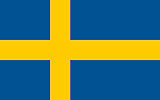
Die gehbehinderte Schwedin Aina Wifalk erfindet den Rollator. Millionen von gehbehinderten alten Leuten erhalten dadurch Unabhängigkeit und Bewegungsfreiheit.
Abb.: Standard-Rollator von 2005
[Bildquelle: Bestrossi / Wikimedia. -- Public domain]
1978-01-01
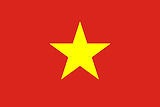
Vietnams stellvertretender Außenminister Vo Dong Giang erklärt, dass Vietnam die kommunistischen Terroristen in Thailand und Malysia nicht unterstützen wird. Vietnam betrachte die Aufstände in beiden Ländern als deren innere Angelegenheit. Vietnam exportiere nicht seine Revolution und erwarte, dass die Gegenseite nicht ihre Konterrevolution nach Vietnam exportiere.
1978-01-09

Thailand und Vietnam schließen in Bangkok ein Handelsabkommen und ein Luftfahrtsabkommen (über Überfliegungs- und Landerechte) ab.
1978-01-06 - 1978-01-08


Kronprinz (bis zur Iranischen Revolution 1979) Reza Pahlavi (رضا پهلوی) (geb. 1960) von Iran ist Gast des Königspaars. Der Kronprinz zieht die Aufmerksamkeit der Thai-Frauen auf sich.
Abb.: Reza Pahlavi II. (رضا پهلوی)
[Bildquelle: Wikipedia. -- Public domain]
1978-01-16
Lehrerstreik in ganz Thailand. Die Lehrer fordern 200 Baht Lebenskostenzuschlag und Gleichstellung mit anderen Staatsbediensteten. Sie erreichen, dass ihnen rückwirkend ab 1. Oktober 1977 200 Baht Lebenskostenzuschlag bezahlt wird.
1978-01-21


Das Königspaar, 500.000 Laien und 10.000 Mönche nehmen in Wat Pa Udom Somphorn (วัดป่าอุดมสมพร), Sakon Nakhon (สกลนคร), an der Kremation des Wald-Mönchs Fan Ajaro (ฝั้น อาจาโร, 1899 - 1978) teil 2000 Soldaten und Polizisten sorgen für die Sicherheit. Der Mönch war Schüler von Man Bhurithatto (มั่น ภูริทัตโต, 1870 - 1949).
Abb.: Lage von Sakon Nakhon (สกลนคร)
[Bildquelle: OpenStreetMap. -- Creative Commons Lizenz (Namensnennung, share alike)]
Abb.: Luang Phu Fan Ajaro (หลวงปู่ ฝั้น อาจาโร)
[Bildquelle: th.Wikipedia. -- Fair use]
1978-01-24

Sechspunkte-Programm der Regierung zur Strategie in den muslimisch-maliischen Südprovinzen:
- "To teach Thai Malay Muslims, particularly youngsters, to be proficient in the Thai language.
- To foster trust between Thai Malay Muslims and the government.
- To improve the standard of living in the far south.
- To eliminate terrorist and separatist threats endangering the southern people, the territorial integrity of Thailand, and the king.
- To persuade Muslim countries that Thai Malay Muslims are not being repressed and to halt support for their insurgent and terrorist activities.
- Improve government administration of the southern border provinces."
[Quelle: Moore, Jeff M.: The Thai way of counterinsurgence. -- [o. O.] : [Selbstverlag], 2014-- 446 S. ; 23 cm. -- (Muir analytics book). -- ISBN 9781497395701. -- S. 137.]
1978-01-24
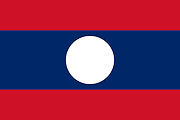
Laos entlässt 15 Thais, die in Laos für den CIA gearbeitet hatten. Viele davon waren seit 1975 inhaftiert.
1978-02-01
Die Regierung verbietet plötzlich den Import vieler Luxusgüter:
- im Ausland montierte Autos,
- alle Lederwaren,
- alle Travel accessoires,
- Toilettenartikel,
- Marmor,
- Porzellan,
- Früchte,
- alle Süßigkeiten außer Schokowaren.
Die Preise für solche Artikel schnellen in astronomische Höhen.
1978-02-02
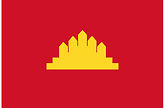
Thailand und die Mörderbande der Roten Khmer beschließen, dass beide Länder Handelsbeziehungen aufnehmen, Botschafter austauschen, und "die Vergangenheit vergessen, Missverständnisse beenden und ihre Beziehungen normalisieren."
1978-02-15
Das Arbeitsministerium begrüßt, dass viele Thais als Gastarbeiter im Mittleren Osten (Middle East) arbeiten. Man ist allerdings besorgt über skrupellose Leiharbeiterfirmen und Subunternehmer, die die Arbeiter ausbeuten. Es arbeiten über 8000 Thais im Mittleren Osten mit einem durchschnittlichen Monatseinkommen von 10.000 Baht. Der Geldtransfer nach Thailand beträgt ca. 56 Mio. Baht pro Monat. Man schätzt, dass 70% des Einkommens gespart werden. Das Arbeitsministerium hat die Zulassungsanträge von 10 Leiharbeiterfirmen abgelehnt und die Zulassung von zwei andern solchen Firmen widerrufen.
Abb.: Middle East
[Bildquelle: CIA. -- Public domain]
1978-02-15

USA: Premiere des Films Coming Home von von Hal Ashby (1929 - 19889. Der Film beschreibt "die Folgen des Vietnam-Krieges sowohl bei Soldaten wie Daheimgebliebenen" (Wikipedia).
Abb.: ©Plakat
[Bildquelle: Wikipedia. -- Fair use]
1978-02-17
Abb.: Sot Kuramarohit (สด กูรมะโรหิต)
[Fair use]Tod des Schriftstellers Sot Kuramarohit (สด กูรมะโรหิต, 1908-1978). Sot hatte in Beijing (China) Sprache, Geschichte und Philospophe studiert. China ist der Schauplatz vieler seiner Werke, z.B.
- ขบวนเสรีจีน (Die Chinesische Freiheitsbewegung). -- Schildert den Befreiungskampf Chinas gegen die Japaner
Abb.: Einbandtitel
- ปักกิ่งนครแห่งความหลัง (Peking, Stadt der Erinnerungen). -- Über eine Russin in China
Abb.: Einbandtitel
- คนดีที่โลกไม่ต้องการ (Ein guter Mensch, den niemand wollte). -- Über einen idealistischen chinesischen Journalisten, der unerwünscht ist
Abb.: Einbandtitel
- ระย้า (Raya). -- Über einen chinesischen Kollaborateur, der Millionär wird, und seinen idealistischen Bruder, der in Armut stirbt.
Abb.: Einbandtitel, Bd. 2
1978-02-20
Colonel Prachak Sawangchit, Sprecher der Jungtürken, in einem Interview mit der Zeitung สยามรัฐ (Siam Rath):
"At the outbreak of the war in Laos in 1961, we went to fight in Laos. ... Our feelings, while fighting in the jungle, were that the country was decaying and degenerating because the mechanisms in the city were bad. We therefore decided to get together and do something so that our nation can survive. . . . The last government [Thanin’s] was inefficient, so we asked them to leave the office; otherwise the country would have been worse off. ... We don’t want anything more than to save the nation, the religion, and the monarchy." [Übersetzt in: Morell, David ; Chai-anan Samudavanija [ชัยอนันต์ สมุทวณิช] <1944 - >: Political conflict in Thailand : reform, reaction, revolution. -- Cambridge, Mass. : Oelgeschlager, 1981. -- 362 S. : Ill. ; 24 cm. -- ISBN 0-89946-044-5. -- S. 279]
1978-02-25

Das Königspaar besucht u. a. Ban Pa Klang (บ้านป่ากลาง), Amphoe Pua (ปัว), Provinz Nan (น่าน). Ban Pa Klang ist ein Zentrum für Hill Tribes, in das Hill Tribes von den Bergen zwangsumgesiedelt worden waren.
Abb.: Lage von Amphoe Pua (ปัว)
[Bildquelle: OpenStreetMap. -- Creative Commons Lizenz (Namensnennung, share alike)]
1978-02-25

Erstmals werden Produkte von vom König unterstützten Opiumersatz-Projekten bei den Bergvölkern auf dem Markt von Chiang Mai (เชียงใหม่) verkauft. Die Projekte wurden 1969 gestartet, um den Bergvölkern eine Alternative zum Opiumanbau zu bieten. Die Projekte stehen unter der Aufsicht von H.S.H. Prince Bhisatej Rajani (หม่อมเจ้าชายภีศเดชรัชนี, 1921 - ). Der Verkauf von Erdbeeren, Pfirsichen, Aprikosen, Gladiolen und anderem ist ein Erfolg.
Abb.: Lage von Chiang Mai (เชียงใหม่)
[Bildquelle: OpenStreetMap. -- Creative Commons Lizenz (Namensnennung, share alike)]
1978-03
Major General Charoenrit Chomrasromrun (เจริญฤทธิ์ จำรัสโรมรัน), der Chef der Village Scouts (ลูกเสือชาวบ้าน), wird von der Border Patrol Police (ตำรวจตระเวนชายแดน) auf einen zivilen Posten versetzt und damit entmachtet.
Abb.: Charoenrit Chomrasromrun (เจริญฤทธิ์ จำรัสโรมรัน)
[Fair use]
1978-03-05

Das Königspaar besucht das McKean Lepra-Spital in Tambon Pa Daed (ป่าแดด), Chiang Mai (เชียงใหม่ / ᨩ᩠ᨿᨦᩉ᩠ᨾᩲ᩵). Das Krankenhaus feiert sein Bestehen seit 70 Jahren. In der Begleitung des Königs gibt es immer noch Akademiker, die Angst haben vor dem Kontakt mit Leprakranken! Sie werden vom dortigen Chef-Arzt aufgeklärt. Das Krankenhaus wird von der Church of Christ in Thailand betrieben. Es ist 1908 vom amerikanischen Presbyterianer-Missionar Dr. James W. McKean (1860 - 1949) gegründet worden.
Abb.: Lage des McKean Hospital
[Bildquelle: OpenStreetMap. -- Creative Commons Lizenz (Namensnennung, share alike)]
1978-03-15
Bangkok Post: Nach einer Schätzung der Mahidol Universität werden jährlich 200.000 Abtreibungen vorgenommen. Die Hälfte der Frauen sind unverheiratet, von diesen 37% Schülerinnen und Studentinnen. Hauptgrund für Abtreibungen ist ökonomische Notwendigkeit.
1978-03-18
Ein neun Stunden dauernder totaler Stromausfall in ganz Thailand bewirkt Chaos.
1978-04-20
Schlangenfänger und Händler behaupten, dass Fleisch, Blut oder Gallenblasen von Schlangen gut sind gegen Sehschwäche, Gliederschmerzen, hohen Blutdruck, Gedächtnisschwäche und viele andere alltägliche Wehwehchen. Es komme aber darauf an, dass man die richtigen Schlangen verzehre. Die Gesundheitsbehörden warnen vor solchen Anpreisungen und weisen auf die Gefahr von Infektionen und Parasiten hin.
1978-04-28

In einem Überraschungsangriff schlagen thailändische und malaysische Truppen gemeinsam im thailändischem Dschungel an der Grenze zu Malaysia ca. 3000 Guerilla-Kämpfer der Communist Party of Malaysia.
1978-04-30
"In April daily newspapers had headlined a story about a Village Scout [ลูกเสือชาวบ้าน] leader who had been arrested in Mae Sot District [แม่สอด], Tak Province [ตาก], for illegal teak logging. Because he was facing the possibility of a death sentence under Emergency Decree 21, one thousand scouts gathered to ask the prime minister to reduce the charges. Newspaper columns suggested that the protesters were not bonafide Village Scouts, and the prime minister took the opportunity to denounce such activities as inappropriate: "This kind of activity is political involvement and interference with the administration of the country. It is wholly inappropriate. Such activities must be changed" (Siam Rath [สยามรัฐ], April 30, 1978, p. 4). " [Quelle: Bowie, Katherine A. <1950 - >: Rituals of national loyalty : an anthropology of the state and the Village Scout movement in Thailand. -- New York : Columbia Univ. Press, 1997. -- 393 S. : Ill. ; 24 cm. -- ISBN 0-231-10391-3. -- S. 274. -- Fair use
Abb.: Lage von Mae Sot [แม่สอด]
[Bildquelle: OpenStreetMap. -- Creative Commons Lizenz (Namensnennung, share alike)]
1978-04-30
Ein Instruktor der Village Scouts [ลูกเสือชาวบ้าน] in Siam Rath Weekly Review (สยามรัฐสัปดาห์วิจารณ์):
"There are lots of people with money, with influence, even people who have broken laws, who have become Village Scouts [ลูกเสือชาวบ้าน]. Very often it is these kinds of people who have become the heads or deputy-heads of the chapters. All they have to do is act like they are respectable and have money to help out with various activities of the scout chapters and they get elected as chapter heads. Even if it costs them hundreds of thousands of baht, they are happy to spend it to get the position, because they figure it will be worth it in the long run." [Übersetzt in: Bowie, Katherine A. <1950 - >: Rituals of national loyalty : an anthropology of the state and the Village Scout movement in Thailand. -- New York : Columbia Univ. Press, 1997. -- 393 S. : Ill. ; 24 cm. -- ISBN 0-231-10391-3. -- S. 125]
1978-05-14
Experten hoffen, der Wasserhyazinthen-Plage (Eichhornia sp.) durch aus Argentinien importierte Rüsselkäfer besiegen zu können.
Abb.: Reinigung der Gewässer von Wasserhyazinthen durch die Müllabfuhr, Ayutthaya (อยุธยา)
[Bildquelle: DJ Badly. -- http://www.flickr.com/photos/djbadly/3293142271/. -- Zugriff am 2011-11-29. -- Creative Commons Lizenz (Namensnennung, keine kommerzielle Nutzung, share alike)]
1978-05-21

Die Thai-Staatsbürgerin Anocha Panjoi (อโนชา ปันจ้อย, 1955 - ) wird in Macau von Agenten Nordkoreas entführt.
Abb.: Lage von Macau (澳門) und Nordkorea
[Bildquelle: OpenStreetMap. -- Creative Commons Lizenz (Namensnennung, share alike)]
"Anocha Panjoi (อโนชา ปันจ้อย) (born 1955) is a Thai national abducted by North Korean agents from Macau (澳門) in May 21, 1978.[1][2][3] Her case only became known after the release of the American Charles Robert Jenkins (1940 - ) and his Japanese family in 2004. Early life and abduction
Panjoy was born in 1955 in the village of San Kamphaeng (สันกำแพง), Chiang Mai province (เชียงใหม่), northern Thailand. Her father, Som Panjoy, was a Korean War Veteran. Panjoy's mother died while she was still a child. Her father died three months before the family became aware of what had happened to her. Panjoy has one older brother, Sukham, and several nieces and nephews.
Life in North Korea
After graduating from high school, Panjoy moved to Bangkok, and then to Macau where she worked as a massage therapist in a local hotel.[4] On the 21st of May, 1978, she left her apartment telling her friends she was heading to a local beauty parlour. According to Charles Robert Jenkins, whose book The Reluctant Communist carries an account of the abduction as told to him by Panjoy herself, Panjoy agreed to take a man claiming to be a Japanese tourist on guided boat tour. On a nearby beach, she was ambushed and forced onto boat, before being taken to North Korea.[5][6]Shortly after her arrival in Pyongyang (평양), Panjoy met and was married to U.S. Defector Larry Allen Abshier (1943 - 1983). In 1980 Panjoy and her husband moved into an apartment near to Charles Jenkins and his Japanese wife Hitomi Soga (曽我ひとみ, 1959 - ), herself an abductee. Panjoy became close to the family, and occasionally took care of the couple's two daughters, Mika and Roberta. Abshier died in 1983. Panjoy continued to live close to the Jenkins family until 1989, when she was married to an East German businessman who worked for the government. Soga and Jenkins last saw Panjoy in 1989, shortly before her second wedding.[7][6]
Sightings and information since 2000
Jenkins has stated that at the time he knew Panjoy, she still wished to return to Thailand and reunite with her family.[1]In 2003, shortly before his departure for Japan, Jenkins was told by North Korean officials that if he chose to remain in North Korea, he would be allowed to live with Panjoy. This made him believe that she was still alive at the time.[1]
Panjoy's family had no idea what had happened to her until in 2005, when her older brother Sukham recognised Panjoy in photograph being held by Jenkins during a television interview.[6][8][9][10][11] Once her family realised that Panjoy had been abducted and had been alive until at least 1989, they began to look for help in trying to have her returned. Since her father had died three months before the family learned what had happened, Panjoy's older brother Suknam and her nephew Banjong have become the main representatives of the family.
In 2005, Panjoy's brother travelled to Japan and met with Teruaki Masumoto (増元照明, 1955 - ), the secretary general of the National Association for the Rescue of Japanese Kidnapped by North Korea (NAKRN). Masumoto's older sister Ruimko was also abducted in 1978.
In 2006, the city of Chiang Mai, near to Panjoy's hometown staged a photo exhibition[12] to focus more attention on her story. Suknam Panjoy also wrote an open letter to his sister, supported by NARKN, and the Association for the Rescue of North Korean Abductees (ARNKA)[13] and the Washington DC non-profit group ReACH[14]
I wonder if you miss me after you read this letter? Since seeing your news, everybody in our family hopes to see you soon. This abduction should never have happened to you. Everybody wants to see you. You know, after you disappeared, we have faced many trials and tribulations. We have spent a lot of money trying to find you. Our father fell ill so I finally admitted him to the hospital at age 97. But, he passed away last year. I hope that if you read this letter, you will miss all of your family. Your family wants to help you come back. You don’t need to be afraid of anything.[15]
With death of Kim Jong-il in December 2011, the family hopes that Panjoy is still alive along with the other abductees,[16] and that progress can be made in negotiations between the two countries.
To date, North Korea denies that Panjoy was abducted by its agents, or that she was ever in the country. North Korea also denies the abduction of any other foreign nationals, except for Japan."
[Quelle: http://en.wikipedia.org/wiki/Anocha_Panjoy. -- Zugriff am 2012-10-07]
1978-06-01

Die USA hebt alle Importquoten auf Thai-Textilien auf.
1978-06-07
Die Regierung will in den nächsten Jahren 1,3 Milliarden Baht für Familienplanung ausgeben, um den Bevölkerungswachstum von gegenwärtig 2,5% pro Jahr auf unter 2,1% zu senken. 414 Mio. Baht sollen aus dem ordentlichen Haushalt kommen, der Rest aus ausländischen Anleihen:
- Welt Bank: 600 Mio. Baht
- USA: 110 Mio. Baht
- Kanada: 120 Mio. Baht
- Australien: 60 Mio. Baht
- Norwegen: 60 Mio. Baht
"Examples of progress made:
When Thailand started its National Family Planning Programme in 1967, the total fertility rate (TFR) was 6.3. By 2003 TFR was reduced to below replacement level, at 1.7.
Over the last 30 years, Thailand’s annual population growth rate decreased by more than half; in 1970 it was 3.3% and by 2003 it was 0.8%.
- In 1970, the contraceptive prevalence rate (CPR) was 14.4%. Since then, CPR has continuously increased, reaching 79.2% in 2000.
Almost all of the contraceptive methods used in Thailand are modern methods. Oral contraception is the most popular method. According to users, it is easy, convenient, inexpensive, and accessible at drug stores. As shown in Figure 3, female sterilization is the second most popular method followed by injectables, which are increasing in popularity. Methods for men are not widely used.
Of the women using contraception, 68.6% said they did so because they did not want more children, 30.5% said they wanted to space their births, and 1% said they had health problems.
The transformation in attitudes and behaviour, and the rapid decline in fertility over the past several decades have been described as a "reproductive revolution".
Elements that have contributed to the success of Thailand’s family planning programme include:
Family planning has been a government priority, in policy and implementation. It has been integrated with other public health services in existence, especially MCH.
Family planning services are extensive. Methods of contraception have been provided conveniently, largely free of charge, without incentives, and with controls for quality and safety.
A range of health care providers have been involved in implementing family planning programming, from physicians to midwives. This enables the government to expand services from the district to the community level, providing convenience to clients and more choices in contraception.
- Partnerships with NGOs and the private sector have facilitated work that the government alone would not have been able to provide. Government support of this work comes in the form of technology, funds, contraceptives, and medical equipment.
University-based research has facilitated acquisition of data.
- Integration with other development programmes, including agriculture, education, and community development, has increased the demand for family planning. "
[Quelle: http://www.searo.who.int/LinkFiles/Family_Planning_Fact_Sheets_thailand.pdf. -- Zugriff am 2011-11-29]
1978-06-17
Premiere des Films ครูบ้านนอก ("Der Dorflehrer") von Surasee Phatham (สุรสีห์ ผาธรรม, 1948 - ) nach dem im gleichen Jahr erscheinenden gleichnamigen Roman von คำหมาน คนไค (Khamman Khonkhai, 1937 - ) (siehe oben!)
Abb.: Filmplaket
[Bildquelle: th.Wikipedia]
1978-06-23 + 1978-07-23
In Anwendung eines Artikels der vorläufigen Verfassung verhaftet die Regierung ohne Gerichtsverfahren Wirtschaftsstraftäter zu langen Gefängnisstrafen: einen Mann aus Mae Sot (แม่สอด) zu 30 Jahren Gefängnis wegen illegalem Baumfällen, und einen Tapioka-Händler zu lebenslangem Gefängnis wegen Verfälschung seiner Produkte.
Abb.: Lage von Mae Sot (แม่สอด)
[Bildquelle: OpenStreetMap. -- Creative Commons Lizenz (Namensnennung, share alike)]
1978-06-25
Siam Rath Weekly (สยามรัฐสัปดาห์วิจารณ์): "Freie Abtreibung : die Kluft zwischen Moral und sozialen Problemen"
"In June 1978, a report ‘Free abortion: the gap between morals and social problems’ appeared in the Thai weekly Siam Rath Sapda Wijan [สยามรัฐสัปดาห์วิจารณ์]. It represents another new element in the discourse surrounding abortion. The article included a drawing of a woman’s face with a lock through her mouth, and another picture of a poor rural woman with her children. It describes abortion as an issue of discrimination against women and was influenced by feminist critiques blaming social attitudes for abortion, in particular the lack of sex education and the acceptance of male promiscuity: 'In a society where sexual discrimination is valued as good, men become men by having a woman to satisfy their lust. The more the better. This mixed with people who have no education on how to prevent a baby being bom means that many countries are asking, if an unwanted pregnancy occurs, what do we do?'
(Siam Rath Sapda Wijan 1978: 21)
Although the article is pro-reform and calls for further debate, it also reveals social attitudes regarding the need for young women to protect themselves from the predatory nature of men. This attitude is reinforced by an article printed on the same page of Siam Rath Sapda Wijan, entitled ‘Please remember’ by Dr Okat Thamawanit. Originally published in the journal Sex Education and Philosophy, the editors have chosen to reprint the article because of its moral stance on abortion. It states:
'I want to add for the benefit of single women that while abortion is illegal, it also hurts and may leave a scar on your heart for your whole life. If you do not marry the man who made you pregnant the scar will be there definitely.
Interesting facts are, more people who have abortions are young, 33% are school age or younger than 20. 50% are between 20-25. About 23% are students and the other 23% are factory workers, about 5% are workers of officials. When we analyse the family it is found that most are from the provinces or poor families. Most of the boys are single about 71%, with various occupations. We conclude that if single girls are:
- Younger than 25
- Don’t live with their parents
- Are close to boys, for example study or work together
In these three situations we must be aware, because all men, no matter what their occupation or knowledge are a danger to girls. Please remember this.'
[Quelle: Whittaker, Andrea <1967 - >: Abortion, sin, and the state in Thailand. -- London : RoutledgeCurzon, 2004. -- 189 S. : Ill. ; 25 cm. -- ISBN 041533652X. -- S. 45f.]
1978-06-27 - 1981-07-31

Morton I. Abramowitz (1933 - ) ist US-Botschafter in Thailand.
1978-07
Gründung der Thahan Phran (ทหารพราน, Rangers), einer paramilitärischen Gruppe zur Bekämpfung kommunistischer Guerillas.
Abb.: ®Logo
Abb.: Thahan Phran (ทหารพราน): "Security personnel establish a secure perimeter prior to the arrival of Royal Thai Army Lt. Gen. Wibunsak at an engineering civic action project site in the Buriram [บุรีรัมย์] province of Thailand May 1, 2008, during Cobra Gold 2008, a combined U.S./Thai civil affairs exercise."
[Bildquelle: Gunnery Sgt. Jose A. Garcia, USMC / Wikipedia. -- Public domain]
Abb.: Lage der Provinz Buriram [บุรีรัมย์]
[Bildquelle: OpenStreetMap. -- Creative Commons Lizenz (Namensnennung, share alike)]
"The Thahan Phran (ทหารพราน; literally "Hunter Soldiers"; Rangers) is a paramilitary light infantry force which patrols the borders of Thailand and is part of the Royal Thai Army (RTA, กองทัพบกไทย). The Thahan Phran operate in conjunction with the Border Patrol Police (BPP, ตำรวจตระเวณชายแดน), but are trained and equipped to engage in combat while the BPP is primarily a law enforcement agency. History
The Thahan Phran was established in 1978 to fight Communist Party of Thailand (CPT, พรรคคอมมิวนิสต์แห่งประเทศไทย) guerrillas and drive them from their mountain strongholds in northeast Thailand.[1] Conceived by General Chavalit Yongchaiyudh (ชวลิต ยงใจยุทธ, 1932 - ), then Director of the Army Operations Centre at RTA headquarters in Bangkok, the unit was to be composed of recruits from regions affected by the communist insurgency, who would be given intensive training courses of 45 days, issued with modern weapons, and then sent back to their villages to mount guerrilla operations against the communists.[2]
ControversySome of the Thahan Phran's initial recruits were convicted criminals whose sentences were remitted;[3] others joined to obtain parcels of land granted as a reward for successful campaigns.[4] To some extent the Thahan Phran were intended to supplant the Volunteer Defense Corps, a civilian militia responsible for protecting the local population from guerrillas.[5] By late 1981, Thahan Phran had replaced up to 80 per cent of regular army units in counter-insurgency operations on the Burmese, Cambodian and Malaysian borders.[6]
Thahan Phran units conducted numerous operations against Khun Sa (ခွန်ဆာ / 張奇夫 / จันทร์ จางตระกูล, 1934 - 2007) in the Golden Triangle[7] and also participated in security actions during the standoff at Prasat Preah Vihear (ប្រាសាទព្រះវិហារ) in 2008 and 2009.[8]
The Thahan Phran have had a troubled history, with units often accused of atrocities, abuse of authority, and involvement in the drug trade. It has also been reported that these units included a large majority of local thugs who often made use of their status to continue to commit crimes against their fellow citizens. Numerous reforms have been made since the 1980s, particularly in screening recruits, and on the whole it is a more professional force than twenty years ago, but serious problems with discipline and human rights abuses remain.[9]
The Thahan Phran are also suspected to have been involved in terrorist activities during the 2010 Redshirt riots in Bangkok.[10][11]
Special units of the Thahan PhranIn 1979 the influx of Cambodian refugees into Thailand became a significant political problem and a security issue, especially since thousands of them were Khmer Rouge (ខ្មែរក្រហម) combatants. Thai Prime Minister Kriangsak Chomanan (เกรียงศักดิ์ ชมะนันทน์, 1917 - 2003), a professional soldier who had previously been Supreme Commander of the Royal Thai Army, placed the border districts under martial law and authorized the Joint Operation of the Supreme Command to control and provide security for the refugees.[12] The Supreme Command responded by creating Task Force 80 in February 1980,[13] a special Thahan Phran unit charged with defensive duties, refugee management, and the supply of food and weapons to the anti-Vietnamese resistance factions that Thailand supported, particularly the Khmer Rouge,[14][15] as well as the KPNLF and the Armee Nationale Sihanoukiste or ANS. During its brief existence Task Force 80 was accused of frequent human rights violations[16][17][18] until it was dissolved in August 1988.[19] One observer summarized the Task Force 80 experiment thus:
- "In a country with a dizzying array of different military units, the rangers were among the lowest paid, worst trained, and least disciplined of all Thai soldiers. They were at the bottom of the military status hierarchy: a poorly educated group who could not have made it into the more prestigious units. Indeed, they were regarded in some circles as little better than local thugs in uniform, who had been issued guns at a time when Communism was considered an immediate threat to Thailand's stability. With little supervision and a long history of often personal experience with the border conflict (many were local recruits from those villages that bore the brunt of the violence that spilled across the border), the rangers were not hesitant to take out their frustrations and aggression on the Khmer. Their "protective" presence often created more conflict than it prevented.[20]"
In 1998 the Salween Special Task Force was created to protect the Salween National Park and Wildlife Sanctuary (อุทยานแห่งชาติสาละวิน) in Mae Hong Son Province (แม่ฮ่องสอน).[21]
In 2007 a new Thahan Phran regiment was formed for special duties in Chiang Saen (เชียงแสน), Chiang Khong (เชียงของ) and Wiang Kaen (เวียงแก่น) districts along the Mekong River (แม่น้ำโขง) in Chiang Rai Province (เชียงราย). The regiment is responsible for curbing human trafficking and other illegal movements across the Mekong into Thailand from northwestern Laos. Thahan Phran cooperate closely with the Laotian authorities, informing them when they force illegal migrants to return to the Lao side.[22]
RequirementsBefore joining Thahan Phran, all candidates must be able to pass the following requirements[23]:
- Age 18-29
- Thai citizen
- Passing grade on physical fitness exam
- Graduate of grade 5
- Residency near the deployment site
Lacking the above requirements, the candidates must have a special ability such as relevant regional experience.
StrengthThe force is led by regular officers and NCOs, with the other ranks comprising both full-time and part-time personnel. Roughly one-third of these regional-level troops are given more advanced training to become an army-level force. The force completed a major reorganization and downsizing between October 2000 through late 2001. The re-organization saw eight of 21 regiments disbanded by General Surayud Chulanont (สุรยุทธ์ จุลานนท์, 1943 - ), then commander-in-chief of the army.[24] This was due to changes in the threats on Thailand's eastern and western borders as well as RTA budget cuts. The total strength is now believed to be about 10,600, a substantial decline from the nearly 20,000 (including reserves) reached in the early 1990s.[25]
OrganizationThe headquarters at Pak Thong Chai (ปักธงชัย), some 30 km south-southwest of Korat (โคราช), was closed on September 30 of 2000 and command transferred to the army's four regional headquarters.[26] The Thahan Phran now has thirteen regimental headquarters (each with 46 headquarters personnel), 107 90-man companies, and twelve women's squads (each 11-strong).
Five regiments, with 37 companies, are now responsible for guarding the border with Myanmar - the 31st, 32nd, 35th and 36th Regiments in the northwest, and the 14th Regiment in Kanchanaburi (กาญจนบุรี).
ActivitiesOn the western frontier, where there is sporadic fighting, the Thahan Phran work closely with the RTA and the Border Patrol Police. On the eastern border, facing Laos and Cambodia, they now have primary responsibility for border surveillance and protection. Many Rangers have been killed or wounded in recent years during cross-border attacks by Burmese troops or their allies, the United Wa State Army (ဝပြည် သွေးစည်းညီညွတ်ရေး တပ်မတော် / 佤联军) and Democratic Karen Buddhist Army (တိုးတက်သော ဗုဒ္ဓဘာသာ ကရင်အမျိုးသား တပ်ဖွဲ့). In February 2001, a 19-man Thahan Phran base designated Unit 9631, situated at Ban Pang Noon near Mae Sai (แม่สาย) on the Thai-Myanmar border, was captured by 500 Burmese troops.[27] The RTA has tripled the strength of the Thahan Phran in the southern peninsula since violence surged there in 2004.[28]
In October 1981 a 39-man unit of Thahan Phran and Burmese guerrillas attempted to assassinate the drug warlord Khun Sa at the instigation of the US Drug Enforcement Agency.[29] The attempt failed,[30] however in January 1982 a Thahan Phran squad from Pak Thong Chai (ปักธงชัย), together with units from the BPP and the Royal Thai Army, was used to force Khun Sa to move his headquarters from Ban Hin Taek (บ้านหินแตก) in northwest Thailand across the border into Myanmar.[31]
[...]References
- ^ Ball D. The Boys in Black: The Thahan Phran (Rangers), Thailand's Para-Military Border Guards. Bangkok, Thailand: White Lotus Press, 2004, 2007, p. 5.
- ^ Phan Suksan (pseudonym), "Thahan Phran: The Thai Army's Combat and Development Force," Sena Son Thet [Army Information], vol. 33, no. 10, July 1995, p. 12.
- ^ According to Jim Morris, an ex-US Special Forces soldier, “This was a special unit, slapped together quickly by a raid on a Bangkok jail.” Jim Morris, The Devil’s Secret Name, 1989, p. 309.
- ^ Thahan Prahan (Royal Thai Rangers)
- ^ Thai Border Patrol Police
- ^ "Southern Thailand: The Problem with Paramilitaries," Asia Report, N°140 23 Oct 2007.
- ^ Conboy Kenneth, South-East Asian Special Forces, Osprey Publishing, 1991, p. 49.
- ^ "Thai Army Rangers clash with Cambodian troops near Preah Vihear temple," Jan 24, 2010.
- ^ "Southern Thailand: The Problem with Paramilitaries," Asia Report, N°140 23 Oct 2007.
- ^ Phil Thornton , "Thailand: A Land of Smiles No More," Reportage Online, June 8, 2010
- ^ Ball, Desmond, "The boys in black, Thailand's dangerous, dark influence." Bangkok Post, 25/04/2010.
- ^ Thai Ministry of the Interior, "An Instrument of Foreign Policy: Indochinese Displaced Persons," 1981, p. 41. Cited in W. Courtland Robinson, Terms of Refuge: The Indochinese Exodus and the International Response, Zed Books, Ltd., London, 1998, p. 70.
- ^ French LC. Enduring Holocaust, Surviving History: Displaced Cambodians on the Thai-Cambodian Border, 1989-1991. Harvard University, 1994, p. 77.
- ^ Ball 2007, p. 30.
- ^ Pilger J. "The Long Secret Alliance: Uncle Sam and Pol Pot." Covert Action Quarterly 1997:5-9.
- ^ Abrams F, Orentlicher D, Heder SR. Kampuchea: After the Worst: A Report on Current Violations of Human Rights. New York: Lawyers Committee for Human Rights, 1985. ISBN 0934143293
- ^ Lawyers Committee for Human Rights (U.S.). Seeking Shelter: Cambodians in Thailand: A Report on Human Rights. New York: Lawyers Committee for Human Rights, 1987. ISBN 0934143145
- ^ Al Santoli, Eisenstein LJ, Rubenstein R, Helton AC, Refuge Denied: Problems in the Protection of Vietnamese and Cambodians in Thailand and the Admission of Indochinese Refugees into the United States. New York: Lawyers Committee for Human Rights, No.: ISBN 093414320X 1989.
- ^ New York Times, "Thailand to Phase Out Unit Accused of Abusing Refugees," April 7, 1988.
- ^ French 1994, p. 78.
- ^ Cheewin Sattha, "Karen Threat Prompts Security Beef-up," Bangkok Post, Jan 24, 1998.
- ^ Ball, Desmond, "Boys in black," New Mandala, August 24th, 2007.
- ^ Phan Suksan 1995, p. 12.
- ^ Phil Thornton , "Thailand: A Land of Smiles No More," Reportage Online, June 8, 2010
- ^ Ball 2007, p. 1.
- ^ Ball 2007, p. xxiv, 184.
- ^ Ball 2007, p. 166.
- ^ "Southern Thailand: The Problem with Paramilitaries," Asia Report, N°140 23 Oct 2007.
- ^ John Hail, "Long and Hazardous Hunt for the Opium Warlord," Bangkok Post, January 11, 1982, p. 9.
- ^ Bertil Lintner, Burma in Revolt: Opium and Insurgency since 1948, White Lotus Press, Bangkok, 1994, p. 262.
- ^ Pummarai Sumondis, Veera Prateepchaikul, Supradit kanwanich, "The Battle Against the Opium Warlord," Bangkok Post, 31 January 1982, pp. 20-21."
[Quelle: http://en.wikipedia.org/wiki/Thahan_Phran. -- Zugriff am 2012-02-27]
1978-07
In der Zeitschrift เศรษฐกิจการเมืองและวัฒนธรรม [Wirtscahft, Politik und Kultur] erscheint ein Artikel über Kinderarbeit in Thailand, der scharfe Anklage gegen den Mißbrauch von Kindern als billige Arbeitskräfte erhebt.
1978-07-08
60 übergewichtige Frauen bewerben sich als "Miss Jumbo" für kostenlose Abmagerungskuren.
1978-08 - 1981-05
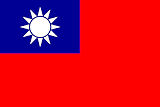
"In a series of decrees between August 1978 and May 1981, the Cabinet approved citizenship for four large increments of KMT [Kuomintang - 中國國民黨] refugees— 5,179 soldiers and family members that had participated in anticommunist operations in north Thailand. Priority was given to families of those that had fallen in the Khao Kho [เขาค้อ] and Khao Ya [เขาย่า] campaigns. On Supreme Command recommendation, the Cabinet approved permanent alien residence status for a larger, fifth group of 8,549 soldiers and family members that had not been directly involved in the above operations. Most members of that fifth group were, over time, granted Thai citizenship on a case-by-case basis." [Quelle: Gibson, Richard M. ; Chen, Wenhua [陳, 文華] <1944 - >: The secret army : Chiang Kai-Shek and the drug warlords of the golden triangle. -- Singapore : Wiley, 2011. -- 338 S. ;: Ill. ; 23 cm. -- ISBN 978-0-470-83018-5. -- S. 305. -- Fair use]
1978-08-01
Ausländische Touristen können statt bisher für nur 30 Tage bei der Einreise Touristenvisa bis zu 60 Tage erhalten. Diese können im Land nochmals um 30 Tage verlängert werden. Geschäftsleute erhalten Visa mit 90 Tage Gültigkeit. Touristengruppen mit mindestens 10 Personen aus Hong Kong (香港) und China können jetzt ohne finanziellen Bürgen einreisen.
Abb.: Lage von Hong Kong und China
[Bildquelle: OpenStreetMap. -- Creative Commons Lizenz (Namensnennung, share alike)]
1978-08-10
Prateep Ungsongtham (Hata) (ประทีป อึ้งทรงธรรม ฮาตะ, 1952 - ) erhält in Manila den Magsaysay Award for Public Service.
Abb.: ®Ramon Magsaysay Award
[Bildquelle: Wikipedia. -- Fair use]
Abb.: Lage von Manila
[Bildquelle: OpenStreetMap. -- Creative Commons Lizenz (Namensnennung, share alike)]
Abb.: Prateep Ungsongtham (Hata) (ประทีป อึ้งทรงธรรม ฮาตะ)
[Bildquelle: http://www.rmaf.org.ph/Awardees/Citation/CitationUngsongtham-HataPra.htm. -- Zugriff am 2011-11-29. -- Fair use]
"Prateep Ungsongtham Hata (Thai: ประทีป อึ้งทรงธรรม ฮาตะ, Aussprache: [pràtʰîːp ʔɯ̂ŋsoŋtʰam haːtàʔ], auch bekannt als „Khru Prateep“ - ครู ประทีป, Lehrerin Prateep; * 9. August 1952 in Bangkok) ist Generalsekretärin der Duang Prateep Foundation (มูลนิธิดวงประทีป) und thailändische Senatorin. Leben
Prateep wurde im Slum Klong Toey (คลองเตย) in Bangkok geboren. Schon in jungen Jahren arbeitete sie hart um ihre Familie zu unterstützen und besuchte nebenher die Abendschule. Da illegale Slumbewohner keine Geburtsurkunde bekommen, können sie keine reguläre Schule besuchen. Um den Kindern eine Chance zu geben, gründete Prateep 1968 eine inoffizielle Slumschule, in der sie für 1 Baht pro Tag unterrichtete.
Als das Slumgebiet geräumt werden sollte, brachte sie den Fall in die Nachrichten. Prateep erreichte, dass ein nahe gelegenes Gebiet besiedelt werden durfte und organisierte den Umzug der Slumbewohner.
1976 hat sie ihre Ausbildung mit einem Diplom am Suan Dusit (สวนดุสิต) Teachers College in Bangkok abgeschlossen.
1978 wurde Prateep der Magsaysay-Preis für soziale Verdienste verliehen. Von dem Geld, das sie erhielt, gründete sie die Duang Prateep Foundation (DPF) und wurde Generalsekretärin. Der Name Duang Prateep bedeutet Flamme der Hoffnung. Dies ist auch das Symbol der Stiftung. Die Stiftung setzt sich für die Bedürfnisse der Slumbewohner ein. Prateep wurde als Slumengel von Thailand bekannt.
1980 hat sie ihre Vollzeitbeschäftigung als Lehrerin aufgegeben um sich ihrer Arbeit als Leiterin der Duang Prateep Foundation zu widmen. Im gleichen Jahr erhielt sie den Rockefeller Youth Award. Vom Preisgeld gründete sie die Foundation for Slum Child Care.
1987 heiratete sie den japanischen Staatsbürger Tatsuya Hata (ทัตซึยะ ฮาตะ).
1992 wurde sie eine Anführerin der Demokratiebewegung und beteiligte sich an Protesten gegen die damalige Militärregierung.
Bei den ersten freien Wahlen in Thailand im Jahre 2000 wurde sie in den Senat gewählt. Dort setzt sie sich auf politischer Ebene für die Rechte armer und benachteiligter Menschen ein.
Königin Silvia von Schweden verlieh ihr 2004 The World's Children's Prize for the Rights of the Child."
[Quelle: http://de.wikipedia.org/wiki/Prateep_Ungsongtham_Hata. -- Zugriff am 2011-11-29]
1978-08-12

In Beijing (北京) unterzeichnen China und Japan einen Friedens- und Freundschaftsvertrag.
1978-08-26 - 1978-09-28
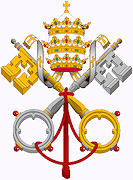
Johannes Paul I., geborener Albino Luciani (1912 - 1978), ist Papst.
Abb.: Johannes Paul I., 1978
[Bildquelle: kathpedia]
1978-09

Es erscheint:
Black paper : facts and evidences of the acts of aggression and annexation of Vietnam against Kampuchea. -- [Phnom Penh] : Dept. of Press and Information of the Ministry of Foreign Affairs of Democratic Kampuchea, 1978. -- 89 S. : Ill. ; 21 cm
Abb.: Einbandtitel des Nachdrucks New York 1979
1978-09-01

William E. Heinecke (1949 - ) gründet Minor International Plc. (บริษัท ไมเนอร์ อินเตอร์เนชั่นแนล จำกัด)
Abb.: William E. Heinecke
[Bildquelle: Nick Gray. -- https://www.flickr.com/photos/nickgray/275594232. -- Zugriff am 2015-04-08. -- Creative Commons Lizenz (Namensnennung, share alike)]
"William Ellwood Heinecke (born 1949) is an American-born Thai businessman. He is the CEO and Chairman of Minor Corporation, the CEO and Chairman of Minor International (บริษัท ไมเนอร์ อินเตอร์เนชั่นแนล จำกัด), and Chairman of Minor Food Group. Biography
Heinecke moved to Bangkok in 1963 at age 14 with his family, having previously lived in Japan, Hong Kong and Malaysia. Heinecke's father spent 25 years in the United States military, serving in both World War II and the Korean War. When he retired, he joined the foreign service. His mother was an Asia correspondent for Time magazine. Heinecke studied at the International School Bangkok,[1] and persuaded the editor of now defunct Bangkok World to let him write a weekly column on go-carting. In return, he received advertising space alongside it.[2]
At age 17, while still a high school student, Heinecke took over from the Bangkok World's advertising manager.[2] One year later, he founded Inter-Asian Enterprise, to supply office cleaning services, and Inter-Asian Publicity, a radio advertising company, using US$1,200 he had borrowed[citation needed]. He later sold Inter-Asia Publicity to Ogilvy & Mather. In 1967, he founded Minor Holdings, which would over the next four decades would grow into The Minor Group, including more than 30 companies.
Heinecke had his first hotel venture in 1978, the Royal Garden Resort in Pattaya (พัทยา). His business ventures have included advertising agencies and other hotels in Bangkok, Hua Hin (หัวหิน), Phuket (ภูเก็ต), Chiang Mai (เชียงใหม่), Chiang Rai (เชียงราย / เจียงฮาย) as well as outside of Thailand. He also introduced American-style fast foods to Thailand in the late 1970s and 1980s – brands like Mister Donut, The Pizza Company and Burger King. Heinecke naturalized as a Thai citizen in 1991, renouncing United States citizenship in the process.[1][3] He was the president of the American Chamber of Commerce in Thailand and sat on the Prime Minister’s Foreign Investment Advisory Council. He is a supporter of the Thai Elephant Conservation Centre, and authored The Entrepreneur, which has been translated into a number of languages."
[Quelle: http://en.wikipedia.org/wiki/William_Heinecke. -- Zugriff am 2015-04-08]
Abb.: ®Logo
[Bildquelle: Wikimedia. -- Fair use]
"Minor International (บริษัท ไมเนอร์ อินเตอร์เนชั่นแนล จำกัด) is a hospitality company operating over 1,500 restaurants and 100 hotels in the Asia-Pacific, Europe, Middle East regions, and Africa. Based in Bangkok, Thailand, it operates hotels under the Anantara, Four Seasons, Marriott, Elewana, AVANI, and Per AQUUM brands, owns The Pizza Company, Thai Express, and Riverside Restaurant franchises, and operates restaurants under the Swensen's, Sizzler, Dairy Queen, Burger King, and The Coffee Club brands in Thailand and other countries. History
Minor International was founded in 1978 as Royal Garden Resorts (RGR) with initial capital of 3 million baht. The company was listed on the Stock Exchange of Thailand (SET) on 14 August 1988.[5] In late-2004, the company completed the acquisition of 100% of the Minor Food Group and followed this in January 2005 with its de-listing from the Stock Exchange of Thailand.[6][7]
In 2006, Anantara entered Dubai at The Palm Jumeriah [8][9] In 2008, Heinecke acquired 70% of Thai Express and 50% of The Coffee Club and 50% of Elewana Afrika for US$12 million [10] In 2008 he opened the Desert Islands Resort and Spa (Anantara) on Sir Bani Yas Island in Abu Dhabi [11]
On 12 June 2009, the company completed a business restructuring plan with Minor Corporation (MINOR). As a result, the company has directly and indirectly owned 99.92% of Minor's equity interest. On 22 June 2009, Minor was delisted from the Stock Exchange of Thailand.[6][12][13]
In July 2011, MINT has completed a compulsory acquisition and purchased most of the shares of Oaks Hotels and Resorts Limited, a listed company on the Australian Securities Exchange and doing Management Letting Right (MLR) business in Australia, New Zealand and Dubai with a portfolio of 36 serviced suites under the "Oaks" brand."
[Quelle: http://en.wikipedia.org/wiki/Minor_International. -- Zugriff am 2015-04-08]
1978-09-06- - 1978-09-10

Auf seiner Besuchsreise zu ASEAN-Ländern macht Nordvietnams Ministerpräsident Phạm Văn Đồng (1906 - 200) einen Staatsbesuch in Thailand.
1978-09-07

Das Industrieministerium erlaubt der Firma Thonburi Panich (ธนบุรีพานิช), in Thailand Mercedes-Benz-Fahrzeuge zu montieren. Die Firma muss dafür 25% thailändische Produkte verwenden.
1978-09-15
18 ehemalige Studenten der Thammasat Universität (มหาวิทยาลัยธรรมศาสตร์ ) ("Thammasat 18" - ธรรมศาสตร์ ๑๘), die seit 6. Oktober 1976 inhaftiert waren, werden von der Nationalversammlung amnestiert.
Es handelt sich um:
- Thongchai Winichakul (ธงชัย วินิจจะกูล)
- Somsak Jeamteerasakul (สมศักดิ์ เจียมธีรสกุล, 1958 - )
- Sutham Saengprathum (สุธรรม แสงประทุม, 1953 - )
- Apinan Buahapakdee (อภินันท์ บัวหภักดี )
- Praphan Wongsiriphithak
- Wirot Tangwanit (วิโรจน์ ตั้งวาณิชย์)
- MahinTanboonherm
- Prayoon Akaraboworn (ประยูร อัครบวร)
- Attakarn Upathambhakul
- Surachat Phatcharasorawut
- Anupong Pongsuwan (อนุพงษ์ พงษ์สุวรรณ)
- Orissa Airawanwat (โอริสสา ไอราวัณวัฒน์)
- Seri Sirinupong (เสรี ศิรินุพงศ์)
- Arom Pongpangarn
- Surachart Bamrungsuk (สุรชาติ บำรุงสุข)
- Bunchat Sathiantham
- Sangiam Jaemduang (เสงี่ยม แจ่มดวง)
- Suchila Tanchainan (สุชีลา ตันชัยนันท)
1978-09-29
Premiere des Films เทพธิดาบาร์ 21("The angel of Bar 21") von Euthana Mukdasanit (ยุทธนา มุกดาสนิท, 1952 - ).
Abb.: Filmplakat
[Bildquelle: th.Wikipedia. -- Fair use]
1978-10

Nach langen Kämpfen sind die meisten Widerstandsnester von Hmong (ແມ້ວ / ມົ້ງ / ม้ง / แม้ว), rund um den Berg Phou Bia (ພູເບັ້ຍ, Laos) geräumt. Zehntausende von Hmong fliehen nach Thailand.
Abb.: Lage von Phou Bia (ພູເບັ້ຍ)
[Bildquelle: OpenStreetMap. -- Creative Commons Lizenz (Namensnennung, share alike)]
1978-10-01
Große Teile Thailands werden durch Überschwemmungen verwüstet. In Bangkok steht der Chao Phraya (แม่น้ำเจ้าพระยา) zwei Meter über Meereshöhe und überschwemmt einen großen Teil Bangkoks.
1978-10-01 - 1981-08-25
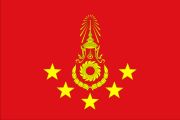
General Prem Tinsulanond (เปรม ติณสูลานนท์, 1920 - ) ist Commander-in-Chief of the Royal Thai Army (ผู้บัญชาการทหารบก). Er ist auch Chef des Internal Security Operations Command (ISOC, กองอำนวยการรักษาความมั่นคงภายใน - กอ.รมน.).
Abb.: Prem Tinsulanond (เปรม ติณสูลานนท์), 1984-04-14
[Bildquelle: A1C ZURBRUEGY / Wikimedia. -- Public domain]
1978-10-02
Die Tourism Organisation of Thailand (TOT) wird zur Tourism Authority of Thailand (TAT, การท่องเที่ยวแห่งประเทศไทย - ททท). Damit erhält sie die Macht, Hotels und Tourismusunternehmen zu kontrollieren und zu klassifizieren.
1978-10-12

Tod von Phra Satsanasophon (Plot) (พระศาสนโสภณ (ปลอด อตฺถการี ; 1902-1978), Abt von Wat Ratchathiwat (วัดราชาธิวาสวิหาร). Er war 1962 unter Beschuldigung, er sei Kommunist und habe sich sexuell verfehlt, verurteilt worden
Abb.: Phra Satsanasophon (Plot) (พระศาสนโสภณ (ปลอด อตฺถการี))
[Fair use]
1978-10-16 - 2005-04-02

Johannes Paul II., geborener Karol Józef Wojtyła (1920 - 2005) ist Papst.
Abb.: Briefmarken der Philippinen, 2011-05-01
[Fair use]
1978-10-17
Kuala Lumpur (Malaysia): Eröffnung des Regional Centre for Arbitration unter der Schirmherrschaft des Asian-African Legal Consultative Committee (jetzt: Asian-African Legal Consultative Organization - AALCO). Das Centre schlichtet Wirtschaftsstreitigkeiten in der ganzen Region.
Abb.: ®Logo
1978-10-18
Die achteckigen 5-Baht-Münzen werden aus dem Verkehr gezogen, da zahlreiche Fälschungen im Umlauf sind.
1978-10-31
Die Kriminalpolizei befreit 56 Mädchen im Alter von acht bis 15 Jahren, die in einer Süßwarenfabrik als Sklavinnen beschäftigt sind. Sie mussten täglich von 6:00 bis 23:00 arbeiten. Sie wurden zur Arbeit gezwungen, auch wenn sie krank waren. Wenn sie sich beschwerten, wurden sie geschlagen. Ihre Eltern haben sie der Fabrik für 1000 bis 1800 Baht pro Jahr überlassen. Die Mädchen sind krank, unterernährt und sechs sind durch die Arbeit verkrüppelt. 35 Mädchen wurde zu ihren Familien zurückgebracht, der Rest hat keine Beziehungen mehr zu Verwandten. Sie waren durch die "Nussara Employment Agency" an die Fabrik verkauft worden.
1978-11-04 - 1978-11-07
1978 WBF World Championships in Bangkok. Thailand gewinnt 1 X Gold, 3 x Silber, 1 X Bronze.
|
"Die Badminton-Weltmeisterschaft 1978 fand vom 4. bis 7. November 1978 in Bangkok, Thailand, statt. Es war die erste Weltmeisterschaft des kleineren Badminton-Weltverbandes WBF, welchem jedoch mit China eines der bedeutendsten Länder des Badmintonsports angehörte. Der traditionsreichere Weltverband IBF hatte bereits 1977 seine ersten Titelkämpfe ausgerichtet. Zur zweiten WM der IBF 1980 vereinigte sich die WBF mit der IBF unter deren Dach, nicht ohne dass die WBF 1979 noch ihre zweiten Titelkämpfe durchführte." [Quelle: http://de.wikipedia.org/wiki/Badminton-Weltmeisterschaft_1978. -- Zugriff am 2013-04-20] |
1978-11-04

Kronprinz Vajiralongkorn wird im Wat Phra Kaeo (วัดพระแก้ว) zum Mönch geweiht.
Abb.: Lage des Wat Phra Kaeo (วัดพระแก้ว)
[Bildquelle: OpenStreetMap. -- Creative Commons Lizenz (Namensnennung, share alike)]
1978-11-04


Moskau: Unterzeichnung des Vertrags über Freundschaft und Zusammenarbeit zwischen der Sowjetunion und der Sozialistischen Republik von Vietnam.
"Article 6: The High Contracting Parties will consult each other on all important international issues affecting the interests of the two countries. In case one of the parties becomes the object of attack or of threats of attack, the High Contracting Parties will immediately begin mutual consultations for the purpose of removing that threat and taking appropriate effective measures to ensure the peace and security of their countries." [Quelle der Übersetzung: http://www.larouchepub.com/eiw/public/1978/eirv05n48-19781212/eirv05n48-19781212_032-the_ussr_vietnam_treaty.pdf. -- Zugriff am 2015-06-29]
1978-11-04

Deng Xiaoping (邓小平, 1904 - 1997), Vice Premier of the State Council of the People's Republic of China (中华人民共和国国务院副总理) trifft zu einem fünftägigen offiziellen Besuch in Thailand ein. Er nimmt auch an der Ordination von Kronprinz Vajiralongkorn teil. Man schließt Abkommen über Handelsbeziehungen und wissenschaftliche und technische Zusammenarbeit.
Abb.: Deng Xiaoping (邓小平), 1984
[Bildquelle: Brücke-Osteuropa / Wikimedia. -- Public domain]
1978-11-04

Deng Xiaoping (邓小平, 1904 - 1997), Vice Premier of the State Council of the People's Republic of China (中华人民共和国国务院副总理), erklärt dass der Sowjetisch-vietnamesische Vertrag vom 4. November den Frieden in Asien und der ganzen Welt gefährdet. Er nennt Vietnam ein asiatisches Kuba.
1978-11-21
Tod der Meditationslehrerin Ki Nanayon (อุบาสิกา กี นานายน aka. เขาสวนหลวง, 1901 - 1978).
Abb.: Ki Nanayon (อุบาสิกา กี นานายน aka. เขาสวนหลวง)
[Faire use]
1978-12-07

Die Frau des Kronprinzen, Prinzessin Soamsavali (พระเจ้าวรวงศ์เธอ พระองค์เจ้าโสมสวลี พระวรราชาทินัดดามาตุ, 1957 - ), gebiert ihr erstes Kind, Prinzessin Bajrakitiyabha (พระเจ้าหลานเธอ พระองค์เจ้าพัชรกิติยาภา).
Abb.: Prinzessin Bajrakitiyabha (พระเจ้าหลานเธอ พระองค์เจ้าพัชรกิติยาภา), 2010
[Bildquelle: Photographer attached to the Prime Minister of the Kingdom of Thailand : Peerapat Wimolrungkarat / พีรพัฒน์ วิมลรังครัตน์. -- http://www.flickr.com/photos/thaigov/5062085834/. -- Zugriff am 2011-11-30. -- Creative Commons Lizenz (Namensnennung)]
1978-12-08

USA: Premiere des Vietnamkrieg-Films The Deer Hunter von Michael Cimino (1939 - ).
Abb.: ©Plakat
[BIldquelle: Wikipedia. -- Fair use]
"Die durch die Hölle gehen (Originaltitel: The Deer Hunter) ist ein US-amerikanischer Spielfilm des Regisseurs Michael Cimino aus dem Jahr 1978. Das drei Stunden lange Epos wird allgemein dem Genre „Kriegsfilm“ oder auch „Antikriegsfilm“ zugeordnet. Die Handlung: Drei Männer aus der amerikanischen Provinz ziehen in den Vietnamkrieg und kehren als Wracks in ihre Heimat zurück oder kommen in Vietnam ums Leben.
„Die durch die Hölle gehen“ ist in drei etwa gleich lange Akte aufgeteilt: vor Vietnam, in Vietnam und nach Vietnam. Dabei schildert Regisseur Michael Cimino, der nach seinen Worten nicht einen Film über Vietnam, sondern einen über die Vereinigten Staaten drehen wollte, den Einfluss des Krieges auf die USA und ihre Bürger.
Auf der Berlinale 1979 verursachte der Film einen Skandal: Die sowjetische Delegation bezeichnete den Film als „Beleidigung für das Volk von Vietnam“ und reiste demonstrativ ab."
[Quelle: http://de.wikipedia.org/wiki/Die_durch_die_H%C3%B6lle_gehen. -- Zugriff am 2013-10-12]
1978-12-09 - 1978-12-20
8th Asian Games in Bangkok. Thailand gewinnt 11 Gold-, 12 Silber- und 20 Bronze-Medaillen. In der Gesamtwertung steht Thailand an 5. Stelle. Am letzten Wettkampftag gewinnen Charuek Hengrasmee und Suthasinee Sirikaya die Goldmedaille in Tennis gemischtes Doppel. Es ist die erste Goldmedaille Thailands in Tennis.
1978-12-12
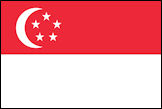
Lee Kuan Yew ( 李光耀, 1923 - 2015), Ministerpräsident von Singapur, trifft Ministerpräsident Kriangsak Chomanan (เกรียงศักดิ์ ชมะนันทน์, 1917 - 2003) in Pattaya (พัทยา). Sie besprechen die Entwicklungen in Indochina im Zusammenhang mit dem Konflikt zwischen der Sowjetunion und China und sehen die Gefahr einer Intervention der kommunistischen Großmächte.
1978-12-21

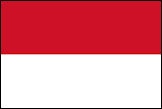
Unterzeichnung des Kontinentalschelf-Abkommens zwischen Thailand, Malaysia und Indonesien.
Abb.: Kontinentalschelf von Thailand, Malaysia und Indonesien (türkis)
[Bildquelle: NOAA / Wikipedia. -- Public domain]
Abb.: Thailand, Malaysia und Indonesien
[Bildquelle: CIA. -- Public domain]
1978-12-22

รัฐธรรมนูญแห่งราชอาณาจักรไทย พุทธศักราช 2521 - Constitution of the Kingdom of Thailand 1978 (13. Verfassung). April 1979 müssen Wahlen stattfinden. Bis dahin hat die Regierung die absolute Macht, mit Bedrohungen der nationalen Sicherheit umzugehen.
Art: engültig
In Kraft: 1978-12-22 - 1991-01-23
Dauer: 12 Jahre 2 Monate 1 Tag
1978-12-25
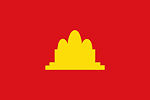

100.000 vietnamesische Soldaten marschieren in Kambodscha ein. Sie werden von 20.000 Guerilla-Kämpfern der kambodschanischen Einheitsfront für die Nationale Rettung unterstützt.
Abb.: Vietnam und Kambodscha
[Bildquelle: CIA. -- Public domain]
Abb.: Volksgruppen in Kambodscha 1972
[Bildquelle: CIA. -- Public domain]
"The Cambodian–Vietnamese War was an armed conflict fought during the Cold War involving the Socialist Republic of Vietnam and Democratic Kampuchea. The war began with isolated clashes along the land and maritime boundaries of Vietnam and Kampuchea between 1975 and 1977, occasionally involving division-sized military formations. On 25 December 1978, Vietnam launched a full-scale invasion of Kampuchea and subsequently occupied the country after the Khmer Rouge (ខ្មែរក្រហម) was removed from power. During the Vietnam War, the Vietnamese and the Khmer Rouge communists had formed an alliance to fight U.S.-backed regimes in their respective countries. Despite their open display of cooperation with the Vietnamese, the Khmer Rouge leadership feared that the Vietnamese communists were scheming to form an Indochinese federation with Vietnam as the dominant force in the region. In order to pre-empt an attempt by the Vietnamese to dominate them, the Khmer Rouge leadership began purging Vietnamese-trained personnel within their own ranks as the Lon Nol (លន់ នល់) regime capitulated in 1975. Then, in May 1975, the newly formed Democratic Kampuchea, dominated by the Khmer Rouge, began waging a war against Vietnam, which was marked by an attack on the Vietnamese island of Phú Quốc. In spite of the fighting which had occurred between the two countries, the leaders of reunified Vietnam and Kampuchea made several public diplomatic exchanges throughout 1976 to highlight the supposedly strong relations between them. Behind the scenes, however, Kampuchean leaders continued to fear what they perceived as Vietnamese expansionism. As such, on 30 April 1977, they launched another major military attack on Vietnam. Shocked by the Kampuchean assault, Vietnam launched a retaliatory strike at the end of 1977 in an attempt to force the Kampuchean Government to negotiate. In January 1978, the Vietnamese military withdrew because their political objectives had not been achieved.
Small-scale fighting continued between the two countries throughout 1978, as China tried to mediate peace talks between the two sides. However, neither country could reach an acceptable compromise at the negotiation table. By the end of 1978, Vietnamese leaders decided to remove the Khmer Rouge-dominated regime of Democratic Kampuchea, perceiving it as being pro-Chinese and too hostile towards Vietnam. On 25 December 1978, 150,000 Vietnamese troops invaded Democratic Kampuchea and overran the Kampuchean Revolutionary Army in just two weeks. On 8 January 1979, a pro-Vietnamese People's Republic of Kampuchea (PRK) was established in Phnom Penh (ភ្នំពេញ), marking the beginning of a ten-year Vietnamese occupation. During that period, the Khmer Rouge's Democratic Kampuchea continued to be recognised by the United Nations as the legitimate government of Kampuchea, as several armed resistance groups were formed to fight the Vietnamese occupation. Behind the scenes, Prime Minister Hun Sen (ហ៊ុន សែន) of the PRK regime approached factions of the Coalition Government of Democratic Kampuchea (CGDK) to begin peace talks. Under heavy diplomatic and economic pressure from the international community, the Vietnamese Government implemented a series of economic and foreign policy reforms, which led to their withdrawal from Kampuchea in September 1989.
At the Third Jakarta Informal Meeting in 1990, under the Australian-sponsored Cambodian Peace Plan, representatives of the CGDK and the PRK agreed to a power-sharing arrangement by forming a unity government known as the Supreme National Council (SNC). The SNC's role was to represent Cambodian sovereignty on the international stage, while the United Nations Transitional Authority in Cambodia (UNTAC) was tasked with supervising the country's domestic policies until a Cambodian government was elected by the people through a peaceful, democratic process. Cambodia's pathway to peace proved to be difficult, as Khmer Rouge leaders decided not to participate in the general elections, but instead, they chose to disrupt the electoral process by launching military attacks on UN peacekeepers and killing ethnic Vietnamese migrants. In May 1993, Sihanouk's FUNCINPEC (គណបក្ស ហ្វ៊ុនស៊ិនប៉ិច) movement defeated the Cambodian People's Party (CPP, គណបក្សប្រជាជនកម្ពុជា), formerly the Kampuchean People's Revolutionary Party (KPRP), to win the general elections. However, the CPP leadership refused to accept defeat and they announced the eastern provinces of Cambodia, where most of the CPP's votes were drawn from, would secede from Cambodia. To avoid such an outcome, Norodom Ranariddh, the leader of FUNCINPEC agreed to form a coalition government with the CPP. Shortly afterwards, the constitutional monarchy was restored and the Khmer Rouge was outlawed by the newly formed Cambodian Government."
[Quelle: http://en.wikipedia.org/wiki/Cambodian%E2%80%93Vietnamese_War. -- Zugriff am 2011-11-26]
Zu Chronik 1979